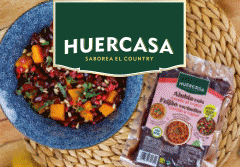Organic fruit specialist Eosta, Triodos Bank and EY (Ernst & Young) are to reveal the results of a groundbreaking pilot programme that demonstrates how organic fruit production has a positive economic impact for not just
agriculture and the environment, but for consumer health.
The results of the pioneering True Cost Accounting pilot programme have found
significant hidden benefits to consumer and producer health of buying organic fruits,
including apples, pineapples, tomatoes, pears, citrus and bananas, due to the negative
impact of pesticide residues.
In fact, in the case of organic apples, the benefit to consumer health has been calculated at
€0.14¢ per kilo compared with conventional apples. For pineapples, the positive deficit has
been estimated at €0.6¢ per kilo.
Adding in previous True Cost calculations for the hidden cost impact on soil, climate and
water of organic versus conventional, organic apples have a positive financial advantage of
€0.20¢ per kilo compared with production that uses agrochemicals.
Eosta – together with Triodos Bank, EY and other partners – will announce the preliminary
findings of the initiative at the Biofach 2017 organic food show in Nuremberg, Germany
on February 16, and will for the first time include True Cost Accounting data on health.
Featuring contributors from Eosta, EY and two former German government ministers, two
seminars¹ at Biofach will look at True Cost Accounting in finance, food and farming and
examine how the concept can work in practice.
Intensive farming – from monoculture to the large-scale use of pesticides – has led to a
depletion of natural capital, while current production methods continue to damage social
capital, ie the welfare of communities. In fact, the UN Food and Agriculture Organisation
(FAO) estimates that the hidden negative impact of food production on natural and social
capital amounts to €5 billion per year. However, despite companies who exhaust their
natural and social capital effectively having no future, such losses are not reflected in
balance sheets or profit & loss accounts.
Eosta, in collaboration with Triodos Bank and EY, has taken on the challenge by
participating in the ‘True Cost Accounting in Finance, Food and Farming’ pilot programme.
The Dutch organic specialist will become the first participant to be accounted on a
company level with True Cost Accounting, up to and including the balance sheet and profit
& loss account.
The initiative follows the launch of Eosta’s True Cost of Food campaign² in 2016, which is
focused on increasing awareness of the real, hidden cost of food production, in the process
demonstrating that rather than organic being too expensive, conventional is too cheap.
With the ‘True Cost Accounting in Finance, Food and Farming’ pilot programme, Eosta,
Triodos Bank and EY are aiming to show the real cost of food production in financial terms,
and outline why such figures have to be featured in balance sheets.
Eosta CEO Volkert Engelsman said: “Thanks to the fantastic work of UN departments
such as FAO, but also WHO, UNEP and UNDP, we have access to monetisation templates
that help not only define the impact of food production on soil fertility, climate change,
water quality, biodiversity and livelihoods, but also monetise the impact.
“We’ve done that work on a farming and food level, and we will now move ahead and apply
it to our balance sheets and profit & loss accounts, meaning as well as reporting to financial
stakeholders, we will also report to natural and social capital stakeholders.
“As a small to medium-sized enterprise, we can move fast, but what we want to avoid is
that this initiative dies in splendid isolation – we want it to be scaled up, which is why we
have embedded it in the context of the Natural Capital Coalition’s Natural Capital Protocol³.
“We hope to combine the change leadership power of small to medium-sized enterprises
and banks, like Eosta and Triodos, with those players who have the ability to scale up the
initiative once the first results have been delivered.”
The results of pilot programme will be presented from 10-11.30am on 16 February at
Biofach 2017, which takes place at the Nuremberg Exhibition Centre, Germany.




















